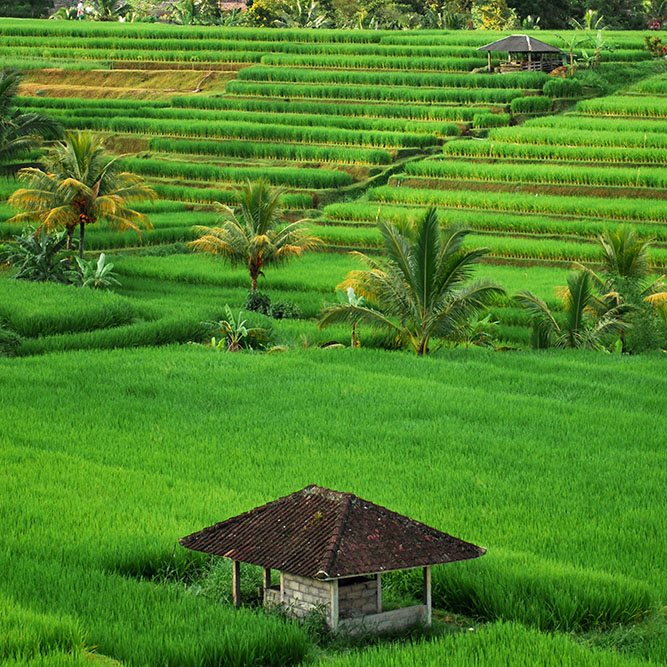Every kratom consumer and advocate in the United States understands the horror of repeatedly hearing that a kratom ban might emerge somewhere in the not too distant future. It’s something we have to discuss every year—sometimes more than once a year. And this year was no different. Earlier this year, Kratom Geek reported that the Indonesian government is set to ban kratom by the year 2022. That pushed the year of the ban up a couple of years from the previous date of 2024, which was discussed back in 2019. And rumors have it that the US Department of Health and Human Services (HHS) and the Drug Enforcement Agency (DEA) were the entities pulling levers behind the scenes with Indonesian government officials to introduce the ban.
And the accusation fits the American modus operandi. Political organizations have repeatedly stepped over the lines to get what they truly desire. These US government agencies try to coerce any system they don’t have jurisdiction over to abide by unlawful and unconstitutional terms. For example, just earlier this year, our government was working overtime to disrupt the kratom supply chains from Indonesia into the United States, cutting off supply to smaller kratom companies. And for a short period, it was working. The smaller kratom vendors that used freight shipping carriers were affected by the government’s misinformation campaign and worried about an impending ban on kratom. But since then, the Indonesian government has finally made its first response to the ongoing kratom ban dilemma.
The Minister of Agriculture Makes an Announcement
Even though there’s still a kratom ban set to go into place by 2022 in Indonesia, a recent development in the country shows the Indonesian Minister of Agriculture has decided to declare kratom as a medicinal plant for the sake of the farming community. The Indonesian Parliament encouraged the Minister of Agriculture to issue the ministerial decree on behalf of the citizens that rely on kratom crops for their livelihoods.
According to the Deputy Chairman of Commission IV, Daniel Johan, the Decree of the Minister of Agriculture Number 104 designates kratom as a medicinal plant, placing the plant under the category of an herbal commodity. He also acknowledged the news should be welcomed by farmers in the area that have been worried about the future of their farms. Keeping a kratom ban at bay would give them financial stability. However, he did state that the results of the decree were dependent upon the final results of the research being conducted by experts within the Ministry of Health, in which the agency is currently collaborating with the American Kratom Association (AKA). So the action of the Ministry of Agriculture is not a final decision for the Indonesian government just yet.
But it does give the farmers a glimpse of hope to reach for during a troubling period. For starters, the pandemic has taken quite a toll on the local and global economies during 2020, which occurred shortly after the announcement from BNN that kratom was set to be banned in 2022.
The Ministry of Health Won’t Lift the Ban Yet
Back in 2017, the Indonesian National Committee on Narcotics and Psychotropic Change decided that kratom should be placed as a Schedule I substance on the narcotics list. But the Ministry of Health allowed for a five-year transition period to take place before scheduling kratom in the country. And the Indonesian National Narcotics Agency (BNN) went on record several times in 2019 to state kratom would be prohibited from food supplements and not allowed to be used as a traditional medicine in 2022.
That gave local farmers time to switch their crops over to a different type of produce. The problem was more local farmers began switching over to kratom in the past couple of years because of the plant’s profit margin compared to the traditional crops they grow.
So as the Deputy Chairman of Commission IV, Daniel Johan wants the entire Indonesian government to get on board with the ruling imposed by the Minister of Agriculture. And he has gone on record saying that he’s ready to conduct meetings between the Ministry of Health, BNN, and the Minister of Agriculture to push it into effect.
However, until that happens, the Ministry of Health’s proposed ban for 2022 is still on the books and won’t get lifted. So, for the sake of the kratom industry in the US, we should all hope they hold those meetings, and everyone agrees to the new ruling by the Agriculture Ministry. If not, the future of kratom remains uncertain for consumers in the United States.
Nobody Knows what the New Proclamation Means for the Kratom Industry
For the last decade, kratom has been a valuable commodity in Indonesia. The economic impact the plant has had on the country’s inhabitants can be seen throughout the countryside. A lot of the local farmers have switched over to kratom as the primary source of income for their farms. For some of the farms, it’s the only source of revenue. That means if a kratom ban were to take effect in 2022, then a financial calamity would be felt across the nation. And with different narratives on the issue arising from separate government agencies, the Indonesian farms are in a state of flux.
But even if the decree from the Ministry of Agriculture was accepted by the entire Indonesian government, that still doesn’t define how it would play out in the long run. Thailand recently announced to take kratom of its Scheduled List of Narcotics and secure it as a medicinal commodity in the country. That nation recently did the same thing with cannabis. However, the only exportation of both products allowed are to businesses that have the required permits and licenses to purchase and import medicinal substances. And that turn of events might give us a glimpse of how the Indonesian market could evolve in the coming years with a change of legislation.
Making kratom legal as a medicinal substance would be a momentous outcome that would keep the Indonesian farmers in business, but that might not bode well for kratom consumers in the States.
Making Kratom a Medicinal Plant Leaves Unanswered Questions
Just earlier this year, we were preparing for an Indonesian kratom ban to go into effect by 2022. But now, we’re receiving news that the country’s politicians are in a discussion to classify kratom as a medicinal commodity. But what does that mean? If it’s anything like Indonesia’s neighbor, Thailand, then it could mean American companies would need the proper paperwork to possess pharmaceutical substances before importing any kratom from Indonesia. And that would be more in line with what the Food and Drug Administration (FDA) was trying to choreograph with international courier services a few months ago.
The move to make the plant a medicinal product in Indonesia might benefit companies that are trying to create pharmaceutical applications from kratom, but there are no assurances that the supply chain will remain open to the regular kratom vendors in that scenario. So we’ll have to wait and see how it all plays out. For now, all we can do is speculate about the situation. Nothing is set in stone.
But we should all continue to advocate for kratom in the US while hoping for the best in Indonesia. At least we know for certain that we have over a year or so before anything drastic might happen. And that gives us plenty of time to continue bringing the fight to the doorway of the White House. We thought we were going to lose kratom in 2016 and didn’t. A similar scenario might play out now. But we must stay united.






